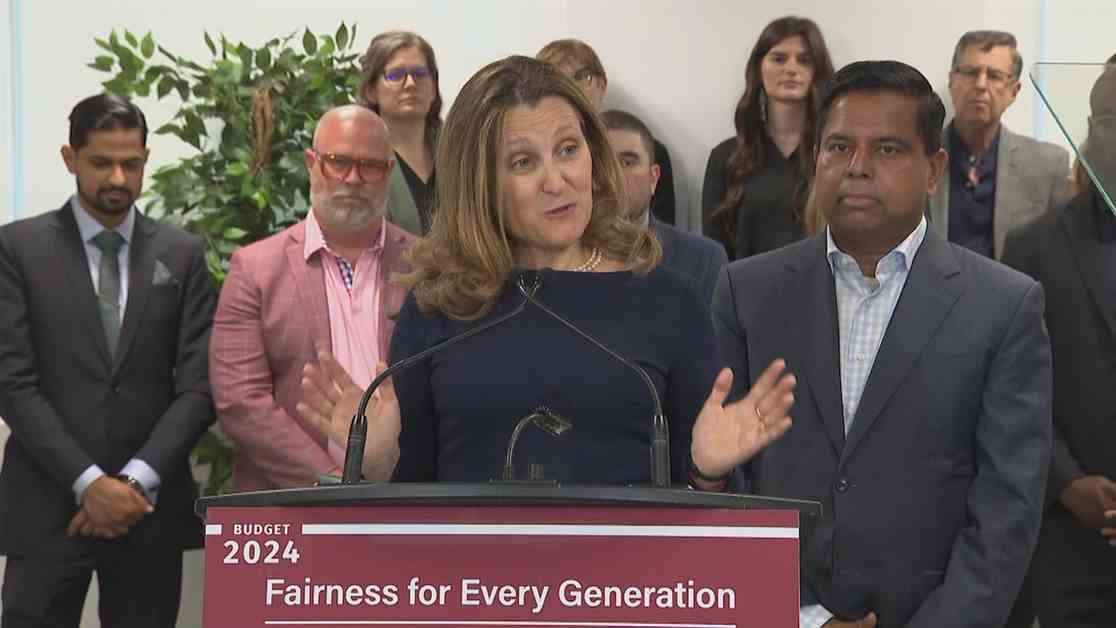Canadian Parliament to Vote on Capital Gains Tax: What You Need to Know
The increase in capital gains tax will be presented to the Canadian Parliament on Monday. Finance Minister Chrystia Freeland announced this during a press conference in Toronto on Sunday. The measure, separate from the 2024 budget, is likely to be approved due to an agreement between the New Democratic Party and the Liberal Party.
A federal source confirmed to Radio-Canada on Friday that the Trudeau government would introduce a motion of ways and means in the House of Commons, paving the way for a vote in the following days. However, Minister Freeland did not specify the type of motion that will be presented.
« When we make significant changes to our tax system, it is completely normal to have a legislative process separate from the main budget implementation law, » stated Minister Freeland. « At the same time, we offer a wide political choice to our country, our economy, and our democracy. Canadians will have the opportunity to see the choice of each member of parliament who represents them. That’s what we will see this week. »
The new capital gains tax will come into effect on June 25, 2024. Tyler Meredith, a certified member of the Munk School of Global Affairs & Public Policy and former senior economic advisor to Prime Minister Trudeau, indicated that the Conservatives are trying to avoid taking a stance on this issue. Mr. Poilievre has not yet specified his party’s policy, he noted.
Meredith expressed curiosity about the outcome of the vote, which he believes presents a dilemma for the Conservatives. They do not want to be seen as defenders of the wealthy. Jamie Ellerton, a political strategist and founding partner of Conaptus, agrees with Meredith, calling it a political ambush aimed at Pierre Poilievre.
Ellerton believes that the Liberals are trying to lure Conservative leader Pierre Poilievre into a political trap. Instead of incorporating this part of the budget as a whole, they are trying to impose it on Parliament to force the Conservatives to take a stance on the issue.
According to Ellerton, the current polling intentions are not favorable to the Liberals. They are attempting to rebuild their coalition of progressive voters by using political rhetoric such as « taxing fairly » and « taxing the rich » to create a binary opposition between the Liberals and the Conservatives. So far, Pierre Poilievre has managed to avoid this political trap.
With information from Andréane Williams.

